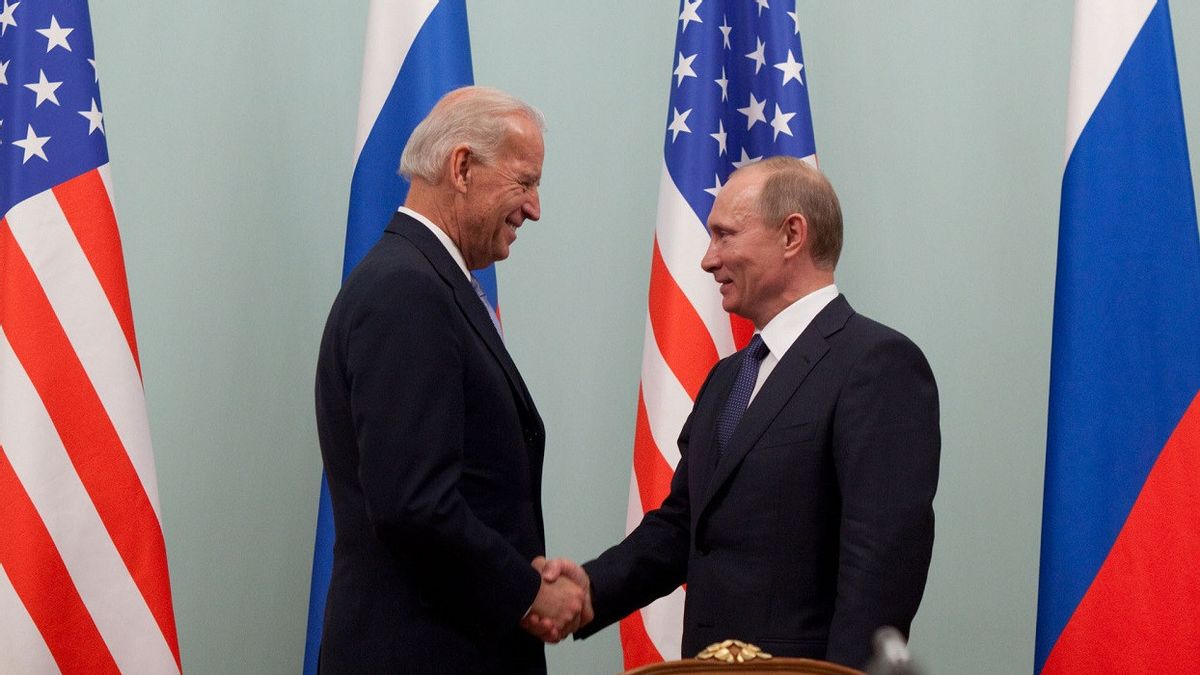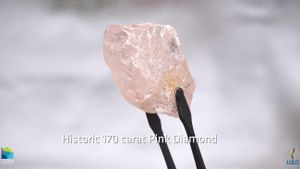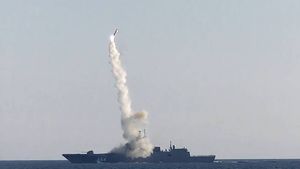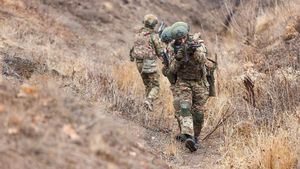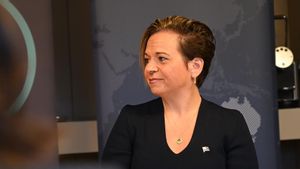JAKARTA - Russian President Vladimir Putin signed a new naval doctrine on Sunday, making the United States Russia's main rival and setting out Russia's global maritime ambitions for key areas such as the Arctic and in the Black Sea.
Speaking on Russian Navy Day in the former imperial capital of St. Petersburg, founded by Tsar Peter the Great, President Putin praised Peter for making Russia a great naval power and enhancing the global position of the Russian state.
After carrying out a naval inspection, President Putin made a brief speech in which he pledged, what he touted as Russia's unique Zircon hypersonic cruise missile, warning that Russia had the military power to defeat any potential aggressor.
Shortly before the speech, he signed a new, 55-page naval doctrine, which sets out Russia's broad naval strategic goals, including its ambitions as a "great maritime power" to expand worldwide.
The main threats to Russia, the doctrine says, are "US strategic policy to dominate the world's oceans" and the movement of the NATO military alliance closer to Russia's borders.
Russia can use its military might appropriately for the situation in the world's oceans if other soft powers, such as diplomatic and economic tools, are exhausted, the doctrine says, acknowledging that Russia does not have sufficient naval bases globally.
Russia's priority is to develop strategic and naval cooperation with India as well as wider cooperation with Iran, Iraq, Saudi Arabia, and other countries in the region, according to the doctrine.
"Guided by this doctrine, the Russian Federation will resolutely and resolutely defend its national interests in the world's oceans, and possess sufficient maritime power to ensure their security and protection," the document said.
Putin's speech did not mention the conflict in Ukraine, but military doctrine envisaged a "comprehensive strengthening of Russia's geopolitical position" in the Black and Azov Seas.
Relations between Russia and the West have experienced deepening tensions during the five months of the Ukraine conflict.
The doctrine also establishes the Arctic Ocean, which the United States has repeatedly said Russia is trying to militarize, as a region of great importance to Russia.
Russia's vast 37,650 km (23,400 mi) coastline, which stretches from the Sea of Japan to the White Sea, also includes the Black Sea and the Caspian Sea.
SEE ALSO:
President Putin said deliveries of Zirkon hypersonic cruise missiles to the Admiral Gorshkov frigate would begin in a few months. The location of their deployment will depend on Russian interests, he said.
"The key here is the capability of the Russian navy. It is able to respond with lightning speed to all those who decide to violate our sovereignty and freedoms," President Putin said.
The hypersonic weapon can travel at nine times the speed of sound, and Russia has conducted previous test launches of the Zircon from warships and submarines over the past year.
The English, Chinese, Japanese, Arabic, and French versions are automatically generated by the AI. So there may still be inaccuracies in translating, please always see Indonesian as our main language. (system supported by DigitalSiber.id)
